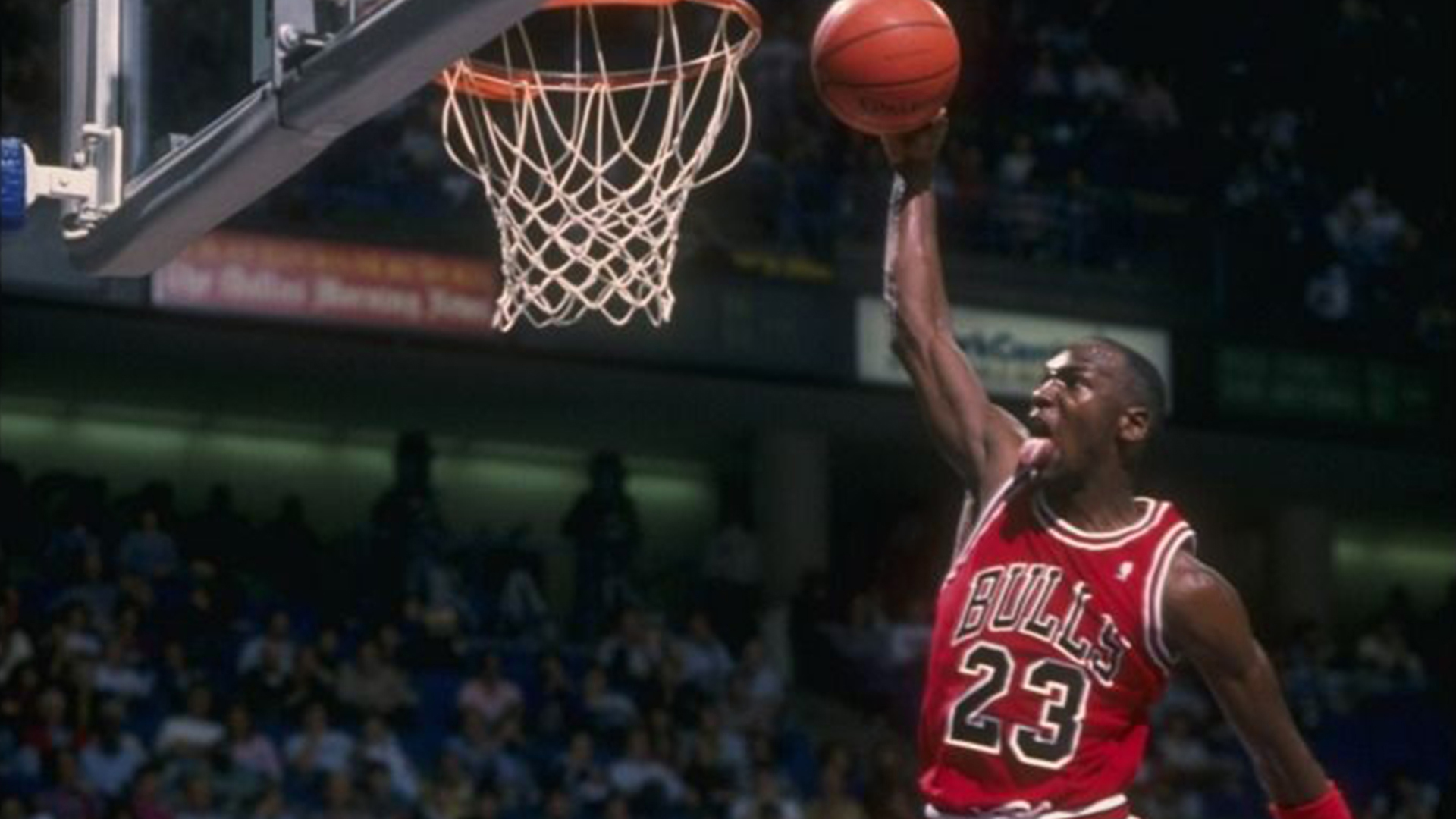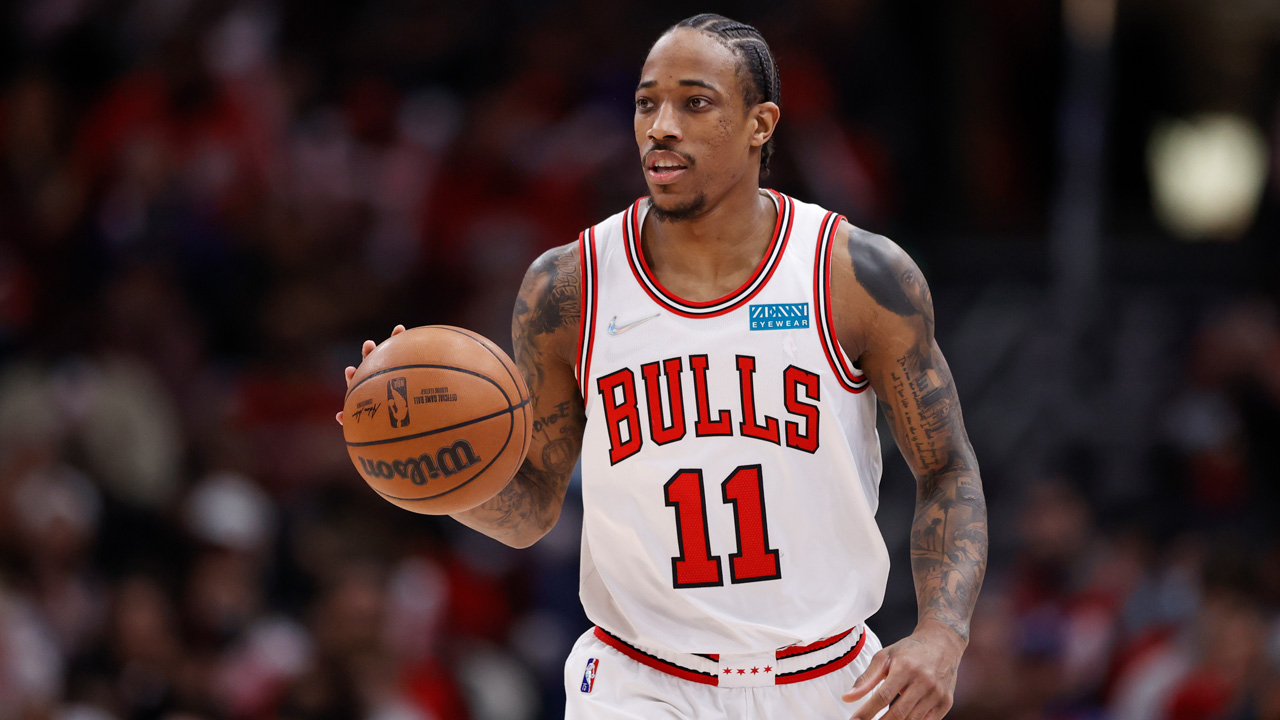Presented by Nationwide Insurance Agent Jeff Vukovich
Of the many amazing aspects to the Chicago Bulls’ dynasty of the 1990s, perhaps this is most impressive: Over six championship runs, the franchise only faced two elimination games---and none in the NBA Finals.
Stay in the game with the latest updates on your beloved Chicago sports teams! Sign up here for our All Access Daily newsletter.
In fact, not until the sixth and final title run did the Bulls need a Game 7 in the Eastern Conference finals. Their 24-8 record over six conference finals stood at 20-5 before the Bulls needed seven games to eliminate the Indiana Pacers in 1998.
So perhaps it’s no surprise that as we look to Settle the Argument of the greatest Bulls team of all-time, the semifinal matchups are fairly one-sided. It’s just part of these victorious teams’ DNA.
Let’s not bury the lead: With the help of our partners at Strat-O-Matic, simulated games with real play-by-play and box scores have been staged as we determine the greatest Bulls team of all-time.
The top-two seeds, the 1995-96 Bulls and the 1991-92 Bulls, received byes. Last week, the No. 3-seeded 1996-97 Bulls swept the No. 6-seeded 1992-93 Bulls 3-0 in one quarterfinal matchup. And the No. 5-seeded 1990-91 Bulls defeated the No. 4-seeded 1997-98 Bulls 3-1 in the other quarterfinal.
Chicago Bulls
So let the semifinal matchups begin.
No. 1 seed 1995-96 Bulls vs. No. 5 seed 1990-91 Bulls
Michael Jordan had no sympathy for the first title team. Then again, Jordan never had much sympathy for anything, really.
The 1990-91 Bulls finished seventh in defensive rating, allowing 105.2 points per 100 possessions. All Jordan did in Games 1 and 2 was average almost exactly half that, scoring 54 points in the opener and 52 points in the next meeting to establish the 72-win team’s dominance.
The 1995-96 Bulls, who led the NBA in offensive, defensive and net ratings, led by as many as 30 in the opener. Scottie Pippen added 24 points and Steve Kerr contributed 16 in the 132-107 blowout.
In Game 2, Pippen added 31 points. The 1995-96 Bulls scored 67 points in the first half to lead by 27 at halftime and cruise to the 131-88 victory.
Game 3 showcased the 1995-96 team’s offensive depth as Jordan “only” scored 37 points, while Pippen added 28 and Toni Kukoc (17 points) and Ron Harper (14) also reached double figures. For the third straight game, the 1990-91 team never led and found itself on the precipice of an ignominious sweep.
But the 1990-91 team had some pride. After all, this is the team that finally broke through the Detroit Pistons to face the Los Angeles Lakers in the NBA Finals. Playing at the old Chicago Stadium, John Paxson sank two big free throws and Horace Grant added a huge hoop late to stave off elimination and the sweep. The younger Jordan scored 35.
But the 1995-96 team cruised to the 4-1 series victory with a 121-88 blowout in Game 4. Jordan scored 12 straight points down the stretch as part of his 42 points, with Pippen adding 22 points and five players in double figures.
No. 3 seed 1996-97 Bulls vs. No. 2 seed 1991-92 Bulls
Unsurprisingly, Jordan---young and old---stood at the center of the storyline to Game 1.
The older Jordan flirted with a triple double for the 1996-97 team, finishing with 39 points, seven rebounds and eight assists in the 123-111 victory. The 1996-97 team used a 40-point fourth quarter to break open a close game late. The younger Jordan, hounded by Pippen, shot just 8-for-24.
In Game 2, the 1991-92 team evened the series with a 120-105 triumph. Jordan, Pippen and Grant all topped 20 points, while the older Jordan struggled this time. He shot just 6-for-26.
Back at the United Center, the 1996-97 team took a 3-1 series lead with workmanlike victories of 115-100 and 126-120. Game 4 produced the most Dennis Rodman-esque box score ever with 14 rebounds and 0 points on just one shot. Talk about the perfect addition.
And that brings us to general manager Jerry Krause, who assembled these two separate three-peat teams. The late, Hall of Fame executive kept Jordan and Pippen as the constants through the six championships and mirrored Grant with Rodman, Bill Cartwright with Luc Longley and Paxson with Kerr for the separate three-peats.
But there were other important moves. B.J. Armstrong played such an underrated role on the first three-peat teams, as did Ron Harper for the second. The Bulls don’t win Game 7 of the 1998 Eastern Conference finals without Kukoc. And on and on and on.
Back to semifinal action, the 1991-92 Bulls staved off elimination in a 107-94 Game 5 victory. Pippen (28 points, 11 rebounds), Jordan (25 points, 12 assists) and Grant (12 points, 11 rebounds) each posted double-doubles.
But the 1995-96 team closed out the six-game series with a 113-96 victory as Jordan, as he so often did, placed an exclamation point on the proceedings. The older Jordan scored 40 points to lead five in double figures, including Kukoc, who had his best game of the series with 15 points, eight rebounds and seven assists.
Check back later this week for the final pitting the 1995-96 Bulls against the 1996-97 Bulls.


